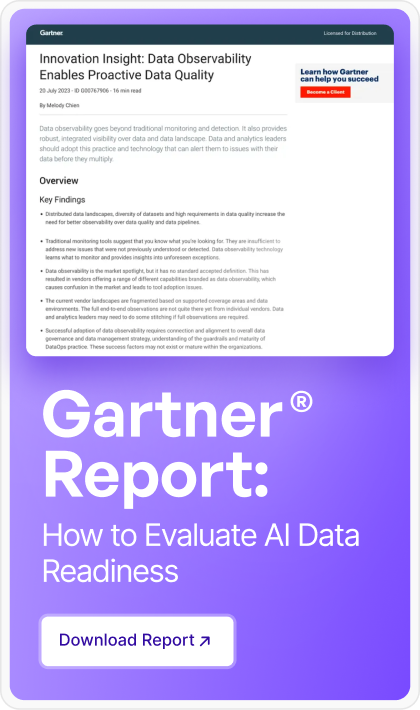Traditionally, companies have been reliant on physical servers to maintain their IT infrastructure. Enterprises can now experience unparalleled scalability, security, and cost-efficiency, with cloud hosting rapidly becoming the norm.
Of late, cloud adoption has skyrocketed. The global spending on cloud services is projected to surpass $675 billion in 2024. This shift is driven by the need for agility and the ability to respond swiftly to business demands while ensuring top-notch security in an increasingly connected world.
Today, online streaming services, social media, and e-commerce applications seamlessly handle large amounts of traffic without any visible hiccups for end-users. This agility and reliability offered by cloud hosting make it indispensable for modern enterprises.
This article explores the key benefits of cloud hosting, real-world examples, top hosting platforms, and how solutions such as Acceldata optimize cloud costs and ensure data observability.
Why Cloud Hosting Is a Game-changer for Modern Enterprises
Cloud hosting has transformed the way modern enterprises manage their data infrastructure, providing numerous advantages that traditional on-premises solutions simply can’t match. Businesses are increasingly adopting cloud hosting to ensure better scalability, flexibility, and efficiency.
Enterprises thrive today, driven by the benefits of cloud hosting, including real-time data access, enhanced security, and global reach.
Here’s an overview of the key benefits that cloud hosting offers to modern enterprises:
1. Enhanced scalability for growing enterprises
As businesses grow, their need for computing power, storage, and bandwidth increases, and cloud platforms allow them to scale resources on-demand without costly infrastructure investments.
For example, Netflix leverages Amazon Web Services (AWS) to handle fluctuating traffic levels, especially during popular show releases. Its ability to scale dynamically helps it serve millions of users without compromising performance.
This on-demand scalability means that enterprises can expand or contract their operations in real time, paying only for what they use, making it a cost-effective solution for businesses of all sizes.
2. Cost efficiency and flexible pricing models
Reduction in wasteful spending is one of the key benefits of cloud hosting for modern enterprises. Traditional on-premise data centers require significant upfront investments in hardware, maintenance, and staff. With cloud hosting, businesses adopt a pay-as-you-go pricing model, reducing these capital expenditures.
Dropbox saved millions of dollars by shifting from private infrastructure to public cloud services. Cloud hosting allows enterprises to avoid over-provisioning, helping them save money while maintaining flexibility. Furthermore, cloud providers offer various pricing tiers, enabling businesses to find plans customized to their specific needs.
3. Global accessibility
Businesses can provide teams and customers with access to applications and data from anywhere in the world with cloud hosting, as long as there’s an internet connection. This global accessibility is crucial in today’s digital-first world, where remote work and distributed teams are becoming the norm.
Slack, a widely used collaboration platform, relies on cloud hosting to allow employees to work together seamlessly across time zones and regions. Global accessibility ensures that modern enterprises stay agile and responsive, supporting workforce mobility and continuous business operations.
4. Increased security and compliance
Security remains a key concern for enterprises adopting cloud hosting. Leading cloud providers offer robust security features such as data encryption, identity access management, multi-factor authentication (MFA), and continuous monitoring to safeguard sensitive information.
Capital One significantly strengthened its data security after migrating to AWS by utilizing its built-in encryption, security policies, and compliance features.
For modern enterprises, the ability to secure data while adhering to regulatory compliance standards such as the General Data Protection Regulation (GDPR) is critical, and cloud hosting solutions effectively meet these needs.
5. Agility and flexibility for innovation
Cloud hosting empowers businesses to swiftly adapt to changing market conditions, enabling them to launch new services, products, and applications more quickly. This agility is essential for innovation, as it allows companies to reduce time-to-market and stay competitive.
Airbnb relies on cloud hosting to continuously update its platform in response to user feedback. With cloud hosting, Airbnb can release new features, manage traffic spikes, and maintain system reliability without any major disruptions. This level of flexibility drives innovation and ensures that modern enterprises can quickly meet user demands.
6. Disaster recovery and business continuity
Cloud hosting provides enterprises with a level of disaster recovery and business continuity that is difficult to achieve with traditional on-premise infrastructure. Businesses benefit from built-in backup and failover systems on cloud platforms, ensuring minimal downtime even during unexpected outages.
Expedia uses AWS for disaster recovery, ensuring that its services remain operational 24/7. Thus, cloud hosting enables modern enterprises to protect their critical data, providing assurance in the face of hardware failures, natural disasters, or other disruptions.
7. Environmental sustainability
Cloud hosting also contributes to environmental sustainability by reducing energy consumption. Several cloud providers are transitioning to renewable energy sources and optimizing energy usage, making them greener alternatives to traditional data centers.
Google Cloud achieved 100% renewable energy usage across its global operations. Adopting cloud hosting is an environmentally responsible choice for enterprises seeking to reduce their carbon footprint and meet sustainability goals.
Best Cloud Hosting Platforms for Modern Enterprises
Selecting the right cloud hosting platform is crucial for optimizing scalability, security, and cost efficiency. Here are some of the top platforms for modern enterprises:
- Amazon Web Services (AWS): AWS is the most popular cloud platform globally, known for its wide range of services, scalability, and robust security features.
- Microsoft Azure: A strong competitor to AWS, Azure offers comprehensive solutions for enterprises focusing on hybrid cloud environments.
- Google Cloud Platform (GCP): With advanced data analytics and AI capabilities, GCP is ideal for businesses focusing on big data and innovation.
- IBM Cloud: Renowned for its security and compliance offerings, IBM Cloud is a preferred choice for businesses with stringent regulatory requirements.
- Oracle Cloud: Oracle Cloud specializes in enterprise applications and databases, providing a cloud solution for large-scale businesses.
How Acceldata Optimizes Cloud Costs and Enhances Data Observability
Acceldata is a powerful platform that helps modern enterprises optimize their cloud costs while ensuring comprehensive data observability across environments:
- Cloud cost optimization: Acceldata helps enterprises lower their cloud spending by identifying inefficiencies and eliminating redundant resources.
- Data observability: Acceldata offers real-time monitoring and insights into data quality, performance, and governance, ensuring that businesses maintain a secure and agile cloud infrastructure.
Discover how Acceldata can transform your cloud operations and deliver cost savings while ensuring seamless data observability.
Request a demo today to see how your enterprise can benefit from optimized cloud hosting and unparalleled data management capabilities.
Summary
Building a resilient cloud infrastructure is essential for modern enterprises looking to stay competitive in a rapidly evolving digital landscape. Cloud hosting offers unparalleled scalability, cost efficiency, security, and global accessibility, allowing businesses to streamline their operations while ensuring robust data protection and compliance.
Companies can reduce their dependence on traditional, high-maintenance server infrastructure by adopting cloud hosting solutions, allowing them to focus on innovation and growth.
Integrating cloud optimization tools such as Acceldata enhances operational efficiency by providing real-time data observability and optimizing costs. As businesses continue to shift toward the cloud, leveraging these benefits will be critical for maintaining agility, security, and long-term sustainability in today’s global market.








.png)








.webp)
.webp)


